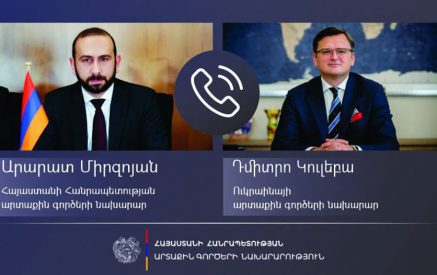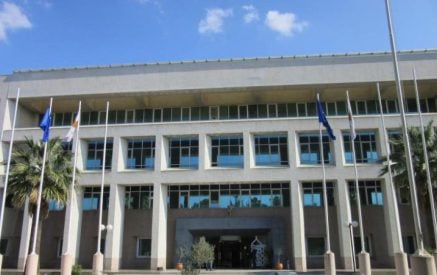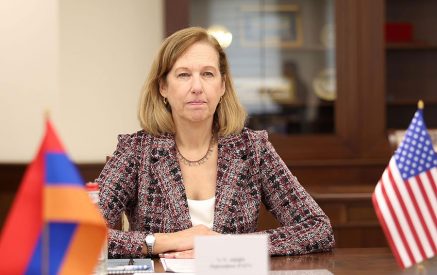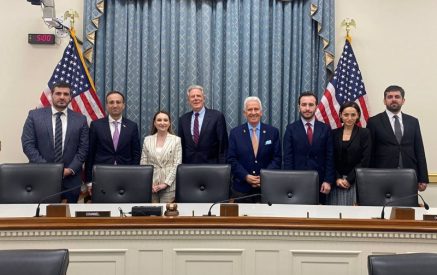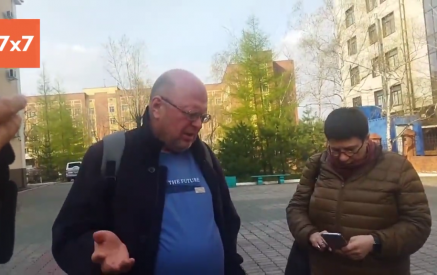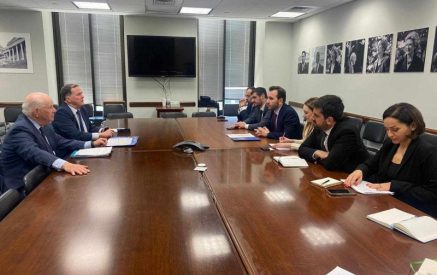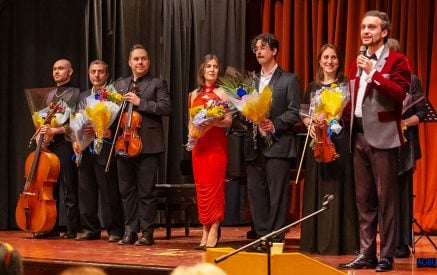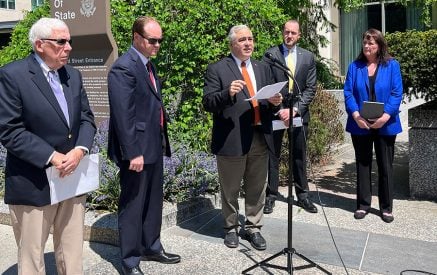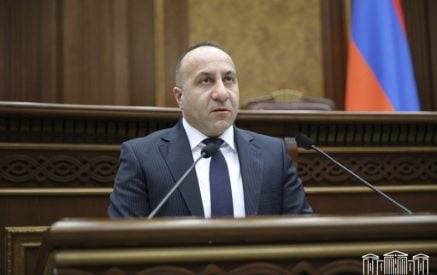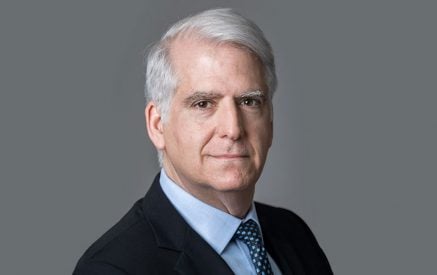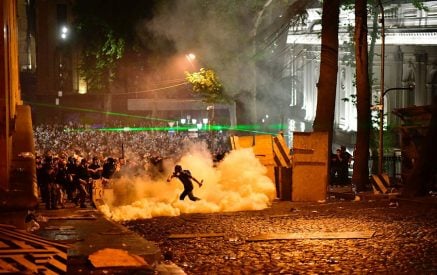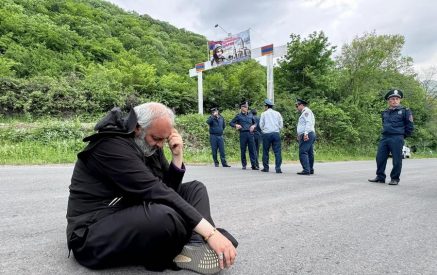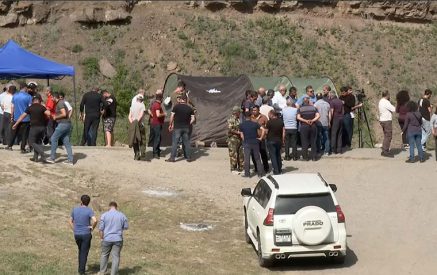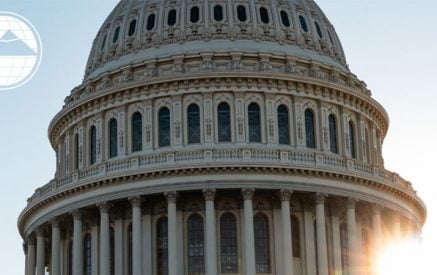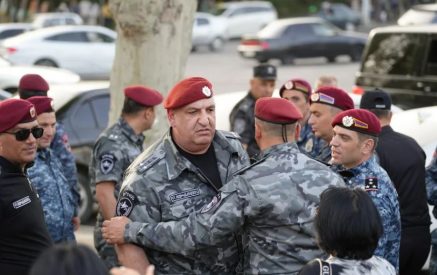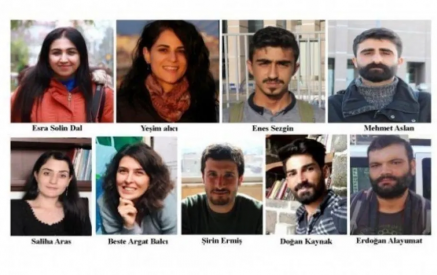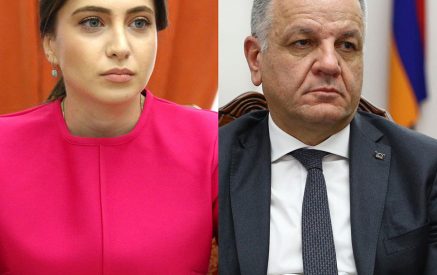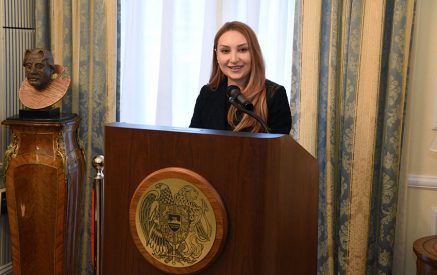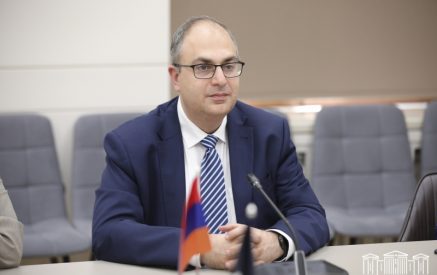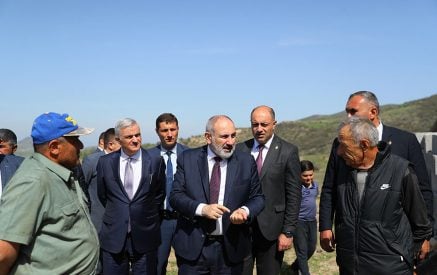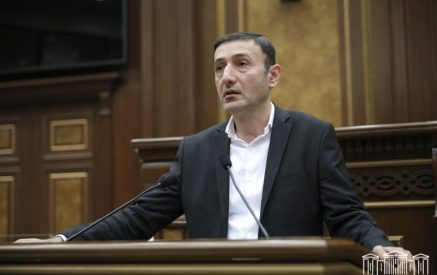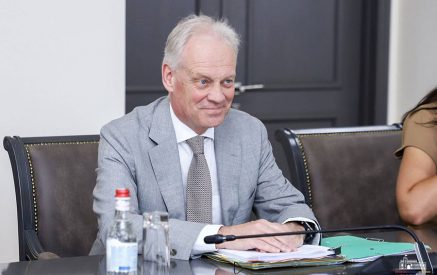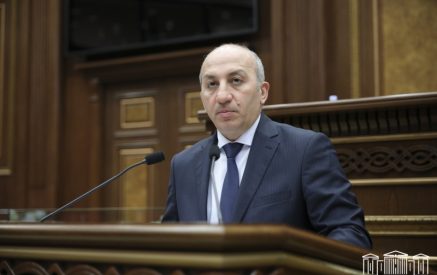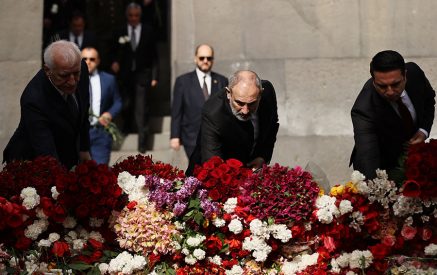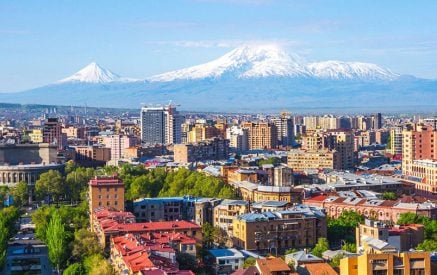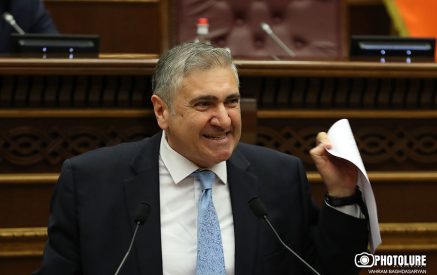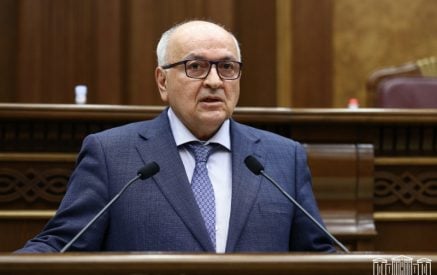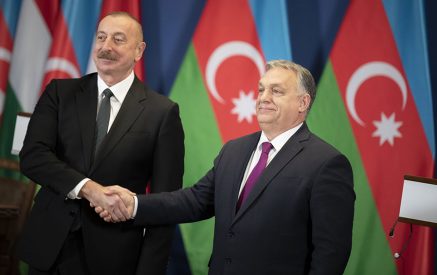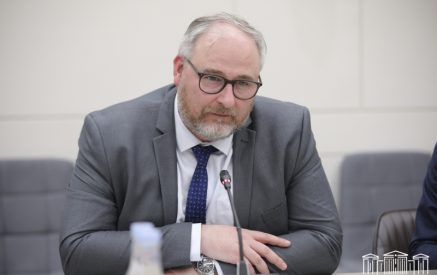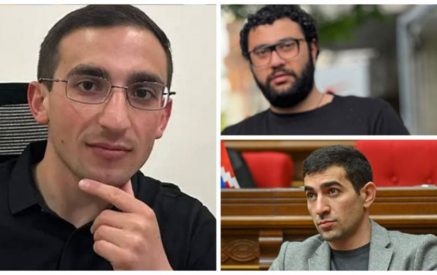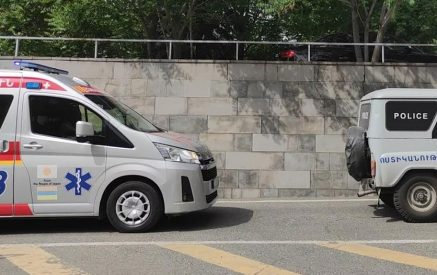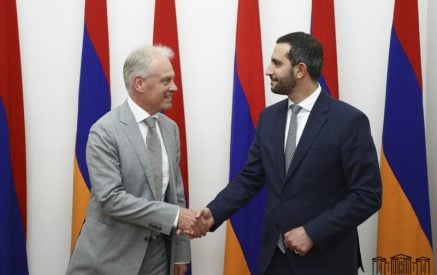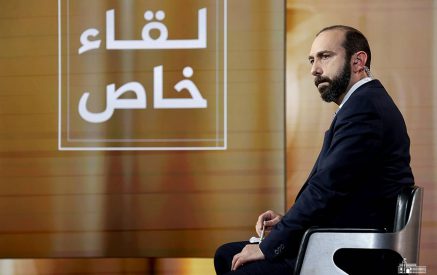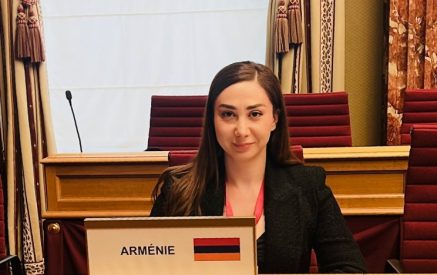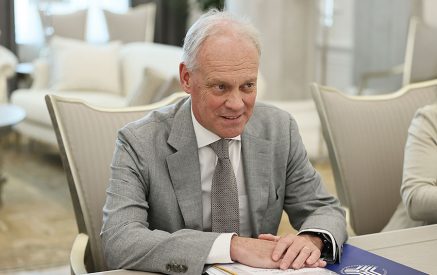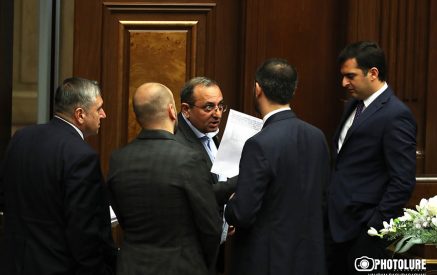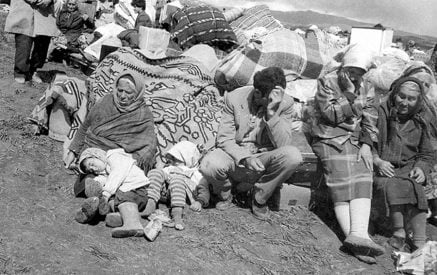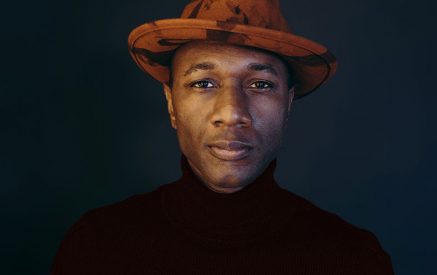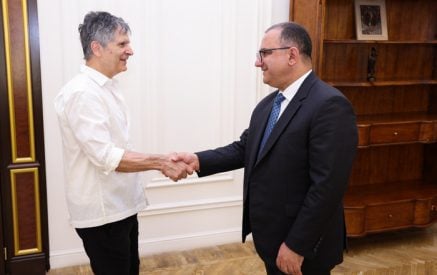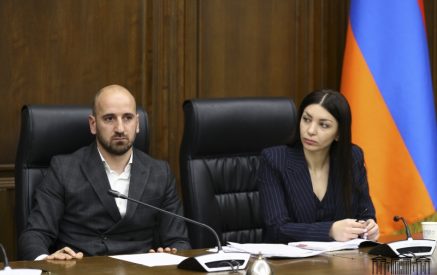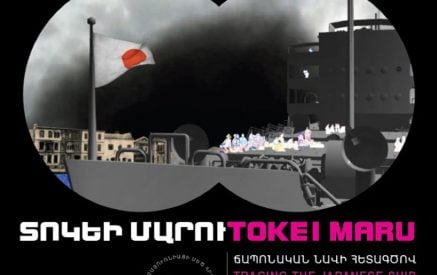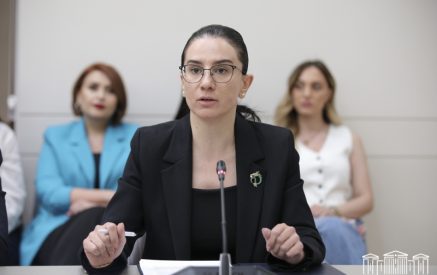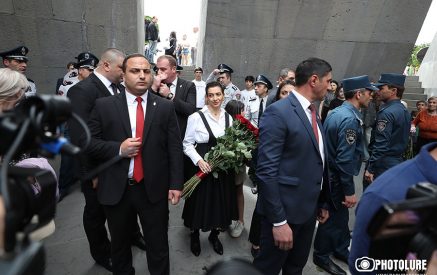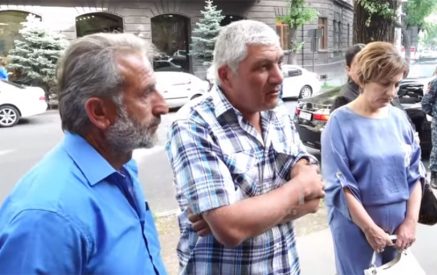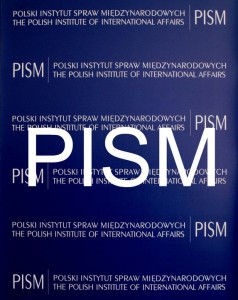
The Republican Party of Armenia (RPA) has ruled with various coalitions since 1999. Affiliated with President Serzh Sargsyan, the party won the parliamentary elections on May 6th. The Republicans improved their results compared to the election of 2007, winning a majority (70 seats) in the 131-seat parliament. The coalition party “Prosperous Armenia” also strengthened its position, receiving 36 seats (up from 25 in 2007). However, the party might not enter the new government as the Republicans are now able to govern without a coalition partner. The radical critics of RPA, the “Heritage” party (5 seats) and the Armenian National Congress (7 seats), led by the first president of Armenia, Levon Ter-Petrosyan, will remain in the opposition.
According to a preliminary assessment by international observers from the Organisation for Security and Cooperation in Europe and the Parliamentary Assembly of the Council of Europe, the parties fully had the opportunity to present their programs through media. However, local and international observers also listed serious violations on election day, including vote-buying and multiple voting enabled by the inclusion of non-existing persons or the names of citizens living abroad who didn’t cast their own ballots. According to the opposition media in the country, the elections failed to meet democratic standards.
The high score won by the ruling party in the elections may have been surprising, given growing criticism from the public for the difficult economic situation of the country, the high levels of corruption, poverty and unemployment, and the blocking of an investigation into the killings of demonstrators during the post-election protests in March 2008. However, the opposition parties are equally unpopular. The Congress of Ter-Petrosyan has until now remained outside parliament. When it decided to enter parliament, the party lost credibility in the eyes of citizens who have been critical of the government. In their view, it was a move legitimising the undemocratic victory of the Republicans.
Read also
Regardless of whether “Prosperous Armenia” will be a part of the ruling coalition, it remains an important force in parliament. Its leader is well-known businessman Gagik Tsarukyan, who has enhanced the party’s popularity thanks to his skilfully constructed image of a philanthropist. His charitable activities (including financial assistance for poor families, farmers, funding of sports halls, scholarships for youth, etc.) have been developed on a large scale and are highly valued in a country where more than 20% of the population lives near or below the poverty line . It is worth noting that Tsarukyan’s party began to distance itself from the policy of the RPA even before the parliamentary elections.
The Slow Democratisation and Modernisation of the Political System. The modernisation potential of the current government is limited because of its ties to oligarchs—the richest entrepreneurs who themselves are often part of Armenia’s political elite. Among the important and difficult tasks that have to be confronted by the current authorities are the fight against corruption, reforms of the justice, tax and self-government systems, as well as rural development, the creation of business-friendly legal and institutional conditions, and the attraction of foreign investment. Another important problem is protection of human rights and civil liberties.
Opinion leaders, regardless of their politics, paid attention to significant improvements in freedom of speech during the presidency of Serzh Sargsyan. They see new opportunities for expression of social disobedience through Internet technology. They also point to those educated in the West, middle-level clerical staff, who in coming years will play an increasingly important role in government. The coming to power of a new generation identifying with Western democratic and free-market values will give Armenia an opportunity for real change and an end to the current stagnation.
The Implications of the Elections for Armenia’s Relations with the EU. For the government in Yerevan, the assessment by international observers that the elections met democratic standards means a continuation of good relations with the EU and further negotiations on the Association Agreement initiated in June 2010 and in its final phase. Most of the chapters have been closed, including fundamental ones on cooperation on economic and financial issues. A particularly important step, from the standpoint of the Armenian side, will be the signing of an agreement on visa facilitation for Armenian citizens travelling to EU countries, planned for next year. The liberalisation of the visas is of great importance to Armenian society. The EU countries are one of the main destinations for businesspeople and workers as well the most preferred place to study abroad. Currently the government in Yerevan also began negotiations on a Deep and Comprehensive Free Trade Agreement (DCFTA) with the EU.
Officially, all parties, both the ruling coalition and the opposition, have declared their willingness to adhere to so-called “complementary policy”—maintaining good relations with the EU and the U.S., while at the same time also with Russia and Iran. The differences in the policy are most visible in Russian integration projects in the post-Soviet area. “Prosperous Armenia” has declared a desire to deepen political and economic integration with Russia. However, the strong position of Tsarukyan’s party does not appear likely to cause a change in the political course of Armenia or the abandonment of further rapprochement with the EU. The Eurasian Union project proposed by Russia is viewed by a majority of Armenian politicians and experts as unrealistic. The participation in such a project, as well as in the existing Customs Union of Russia, Belarus, and Kazakhstan, is impeded by the lack of common borders between Armenia and the member states of these organisations.
Recommendations. A strengthening of the ruling party’s position will bring about the continuation of a pro-European political course for Armenia, though mainly on a declarative level. However, real approximation to European structures requires far-reaching reforms. The assistance of Poland and other EU members through the positively perceived Eastern Partnership program should support the modernisation of the state based on increasing public participation in the political processes and the construction of civil society. This may be achieved by the development of educational programs, student exchanges between EU and Armenian universities, cooperation at the government and NGO levels, and internships for Armenian officials in EU countries. These activities should be directed not only to the urban population but also to those who live in poorer rural areas. The latter are excluded from the social life of the country and remain the most vulnerable to populist slogans. In this respect, EU and Polish development and humanitarian aid projects may play an important role.
Armenia’s enduring exit from the current economic and political impasse will be possible only after the settlement of difficult relations with Turkey and Azerbaijan, both stemming from the Nagorno– Karabakh conflict. The EU’s interest in the democratisation of Armenia and the European integration of the country will stimulate a solution to the Karabakh problem. Only a government that has genuine support will be able to take bold steps in foreign policy. At the same time, the Union should continue its involvement in the peace process in Karabakh so as to significantly reduce the risk of escalation of the conflict.
In the short and middle terms, the EU’s priority in the talks with the government in Yerevan must be ensuring democratic standards, especially in the context of the upcoming presidential election scheduled for the beginning of 2013. The progress in Armenian–EU negotiations on a DCFTA as well as on a visa facilitation agreement should be conditioned on real actions by the Armenian authorities towards the modernisation and democratisation of the country.
Konrad Zasztowt
Polish Institute of International Affairs

